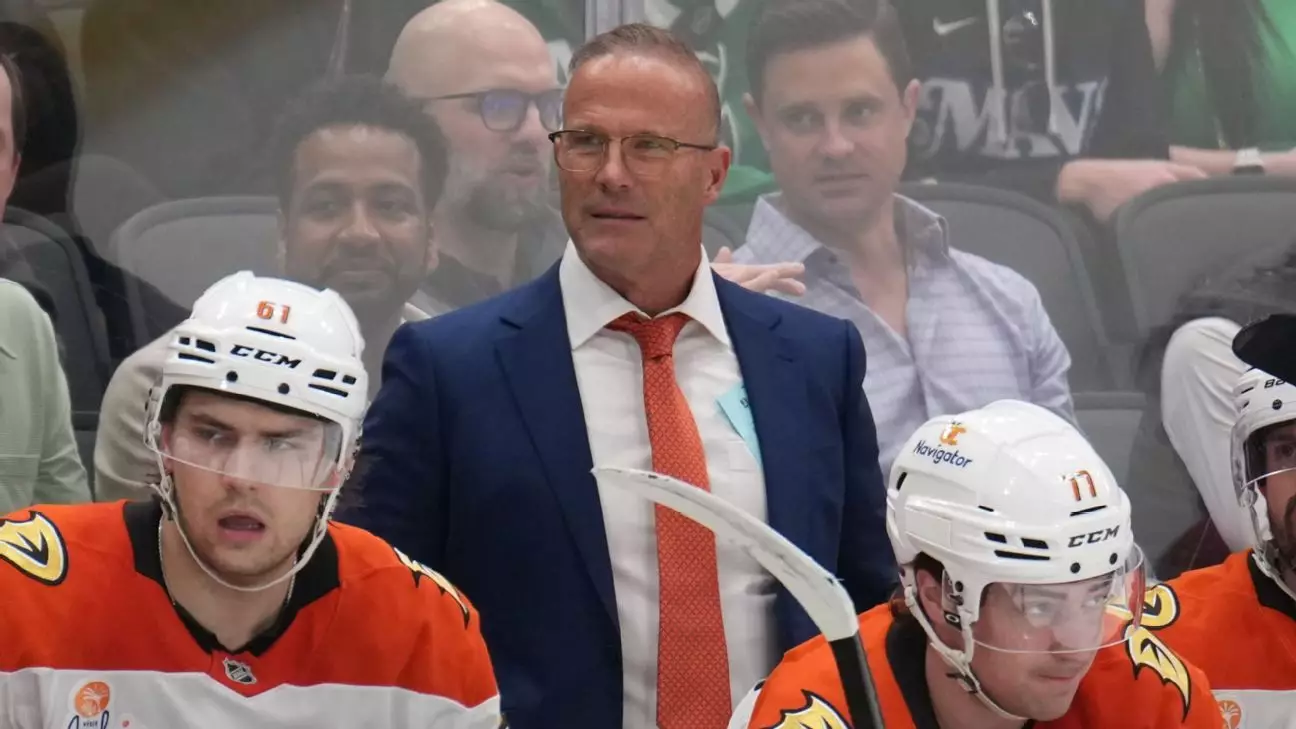In a surprising move that reverberated through the hockey community, the Anaheim Ducks have officially announced that Greg Cronin will not be returning as their head coach for the upcoming season. The decision, made public on a Saturday, marks a significant shift for the struggling franchise. Cronin had been at the helm for two seasons and was originally signed through the 2025-26 season. Nonetheless, the Ducks’ performance under his leadership, particularly tabled at a disappointing 35-37-10 record, has played a crucial role in this change—a stark improvement yet insufficient to secure his position amidst the pressing need for the team to evolve.
The Ducks have now missed the playoffs for an astounding seventh consecutive year, and while some might argue that Cronin’s tenure included slight improvements, the bottom line remains. Under Cronin’s guidance, the Ducks still sat at the lower end of the league standings, reflecting a long-standing issue with their competitive edge.
Verbeek’s Vision for a New Era
General Manager Pat Verbeek did not mince words in explaining the rationale behind this decision. In his official statement, he acknowledged Cronin’s efforts and were responsible for some development within the team, particularly in nurturing the young talent. However, Verbeek articulated a pressing need for change, one that seeks to push the team from mediocrity towards being serious Stanley Cup contenders.
Verbeek’s declaration of intent to revamp the coaching staff indicates a broader ambition that reflects the urgency behind bolstering the Ducks’ performance. He mentions a goal not only to reach the playoffs but also to shape the team in a way that aligns with a clearer vision of success. This ambition places heightened expectations on the upcoming coaching search, which will be essential in determining the fate of this team.
Turning Point: Players and Potential
The responsibility of enhancing the team’s on-ice performance does not solely rest on the shoulders of the general manager; it extends to the players as well. This season showcased a mix of youthful talent and veteran experience. Standouts like Leo Carlsson, Mason McTavish, and rookie Cutter Gauthier are promising elements that could redefine the team’s offensive strategy. By instilling confidence and encouraging consistent performance, a new coach has the potential to elevate these young stars into household names.
However, the specter of stagnation looms heavily. Under Cronin, the Blues’ offensive unit finished an abysmal 30th overall, igniting debates about the coach’s approach toward player development and utilization. Fans and analysts alike expressed consternation at Cronin’s reluctance to maximize the potential of younger, more dynamic forwards, often favoring older players past their prime. Trevor Zegras, a beacon of hope for the franchise, struggled to find his footing during Cronin’s tenure, raising questions about whether a coaching change could revitalize his career.
Defensive Woes and Goalkeeping Concerns
While the Ducks’ offensive output faced scrutiny, their defensive performance also left much to be desired. Ranked 23rd in team defense this past season, the Ducks’ goaltending tandem of Lukas Dostal and John Gibson managed a respectable .901 team save percentage, yet their efforts underscored the lack of comprehensive support from the team as a whole. A new coaching perspective could bring about tactical changes that not only recalibrate the defense but also reinvigorate the team’s overall strategy.
Gaining a fresh voice behind the bench might invigorate the defensive corps, promoting synergy among defenders and emphasizing structured play, which has been sorely lacking. It presents an opportunity to enable a clearer system that capitalizes on transitional play rather than on surviving a relentless barrage from opponents.
Charting the Future
The Ducks are at a crossroads, and as they look ahead, the emphasis must be on creating a winning culture that begins at the coaching level. The announcement of Cronin’s departure signals a critical juncture for the franchise, inviting a wave of optimism as well as apprehension.
They stand poised to reshape their identity, a task that will revolve around both strategic hiring and a commitment to cultivating young talent. The stakes have never been higher, and aspiring players need a leader who believes not only in winning but in developing talent within a sustainable framework. As the Ducks move forward in search of a new head coach, the horizon seems full of possibilities—if only they seize this moment for greatness.

